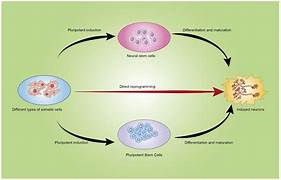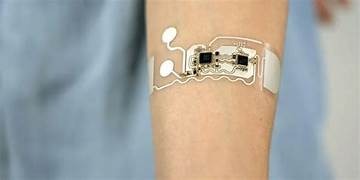
Synthetic Biology: Reprogramming Life to Fight Disease.
Synthetic biology is revolutionizing modern medicine by enabling scientists to design and program living organisms to detect, treat, and even prevent disease. By merging biology with engineering, it offers precise, adaptive therapies—from engineered microbes and immune cells to smart gene circuits—ushering in a new era where life itself can be reprogrammed to combat illness at its source.
✨ Raghav Jain

Introduction: The New Frontier of Medicine
Synthetic biology—a multidisciplinary field combining biology, engineering, computer science, and genetics—has emerged as one of the most transformative scientific disciplines of the 21st century. Unlike traditional genetic engineering, which tweaks existing biological components, synthetic biology designs and constructs new biological parts or entire systems from scratch. Its most profound application may lie in healthcare, where scientists are now reprogramming life itself to combat some of the world’s most formidable diseases, including cancer, infections, genetic disorders, and even aging-related conditions.
This article explores how synthetic biology is being used to design smarter, safer, and more effective medical therapies. From programmable bacteria that detect cancer cells to synthetic viruses that deliver gene-editing tools, the field is ushering in an era of “living medicines.”
Engineering Microorganisms for Therapy
One of the most promising uses of synthetic biology is the design of bacteria to serve as precision tools in medicine. Unlike conventional treatments, which act broadly and often cause side effects, synthetic microbes can be engineered to perform highly targeted tasks.
For example, Escherichia coli bacteria have been redesigned to detect and destroy tumor cells. These bacteria are modified with genetic circuits—combinations of genes that act like logic gates in electronics—that respond to specific signals in the tumor microenvironment. Once the bacteria detect cancer-specific conditions (such as low oxygen levels), they activate genes that trigger the release of therapeutic molecules like toxins, enzymes, or immune modulators. This approach significantly reduces damage to healthy tissues.
Synthetic biology also enables the creation of probiotic therapies, where beneficial bacteria are engineered to release anti-inflammatory molecules in the gut, offering potential treatments for inflammatory bowel diseases (IBD) such as Crohn’s disease and ulcerative colitis. These living therapies adapt to the body’s environment, offering dynamic control that static drug molecules cannot achieve.
Cellular Reprogramming and CAR-T Cells
Synthetic biology is playing a crucial role in advancing personalized cancer treatments, particularly with Chimeric Antigen Receptor T-cell (CAR-T) therapy. In this technique, a patient’s T-cells (a type of white blood cell) are extracted, genetically engineered to recognize cancer cells, and then reinfused into the patient’s body.
Synthetic biology enhances this process by building synthetic receptors that can more precisely differentiate between healthy and malignant cells. Engineers can even design multi-input systems that require two or more tumor markers to activate the T-cell, reducing the risk of attacking non-cancerous cells.
Furthermore, synthetic circuits can be incorporated into T-cells to regulate their activity. For instance, safety switches can be built in so that if the therapy causes an adverse immune reaction (like cytokine release syndrome), doctors can deactivate the engineered cells using a specific drug or signal.
Gene Editing and Synthetic DNA
Gene editing technologies like CRISPR-Cas9 have revolutionized biotechnology, but synthetic biology takes this even further by enabling the design of synthetic DNA circuits and entire genomes. These synthetic constructs can be programmed to edit, delete, insert, or regulate genes with extraordinary precision.
Researchers are developing synthetic transcription factors—engineered proteins that control which genes are turned on or off. These tools can selectively activate genes that suppress tumors or shut down genes that contribute to disease progression.
Moreover, synthetic biology is being used to create "gene drives" that spread beneficial genes through populations of organisms. While controversial in ecological contexts, in medicine, this technique could be used to eliminate vectors of disease like mosquitoes that carry malaria or dengue.
Synthetic Vaccines and Immune Engineering
The COVID-19 pandemic demonstrated how synthetic biology could rapidly accelerate vaccine development. Both Moderna and Pfizer’s mRNA vaccines were products of synthetic biology, relying on artificially synthesized genetic sequences to instruct cells to produce viral proteins and elicit an immune response.
Beyond vaccines, synthetic biology allows researchers to design immune cells with custom sensors and signal-processing capabilities. These "smart immune cells" can be engineered to detect pathogens or cancer markers and trigger tailored immune responses. Companies are also developing synthetic adjuvants—compounds that boost vaccine effectiveness—by mimicking pathogen-associated molecular patterns (PAMPs) using synthetic molecules.
Organoids and Synthetic Tissues
Scientists can now grow miniature, simplified versions of human organs—called organoids—using synthetic biology and stem cell technology. These organoids mimic real tissues and are used to test drugs, study diseases, and even explore potential regenerative treatments.
By combining synthetic DNA circuits with stem cells, researchers can control how cells differentiate and organize, essentially guiding the development of synthetic tissues. This has implications for treating degenerative diseases like Parkinson’s, liver failure, and heart disease by potentially replacing damaged tissue with lab-grown alternatives.
Biocomputing and Living Diagnostics
Another exciting avenue is the development of biological computers—cells engineered to process information and make decisions based on environmental cues. For instance, synthetic biology allows scientists to create "logic gates" inside cells, mimicking how computers make decisions.
These biological systems can be programmed to diagnose diseases in situ. For example, engineered gut bacteria could sense early biomarkers of colon cancer and report the information through a detectable color change in stool. Alternatively, skin patches embedded with biosynthetic cells can continuously monitor blood sugar levels and release insulin when needed.
These “living diagnostics” reduce the need for invasive procedures and could one day serve as continuous monitoring systems for chronic diseases like diabetes, epilepsy, or even mental health conditions by tracking neurotransmitter levels.
Challenges and Ethical Concerns
While synthetic biology holds tremendous promise, it also raises significant ethical and safety concerns. One major worry is the unintended consequences of releasing engineered organisms into natural ecosystems or the human body. These could include off-target effects, gene mutations, or the potential creation of novel pathogens.
There are also biosecurity risks. As synthetic biology tools become more accessible, there is growing concern about their misuse—for instance, creating bioweapons or synthetic viruses. This makes regulation, oversight, and responsible innovation critical.
Ethical debates also surround the idea of creating synthetic life or extensively modifying human embryos, especially when it involves inheritable changes. Balancing innovation with caution is essential to ensure public trust and safety.
Synthetic biology, an interdisciplinary blend of biology, engineering, computer science, and genetics, is transforming the healthcare landscape by offering groundbreaking solutions to combat disease not just through treatment but by actively reprogramming life at a molecular level. Unlike traditional genetic engineering, which typically modifies existing genes, synthetic biology designs entirely new biological systems or rewires natural ones to perform novel tasks, leading to more precise, programmable, and often self-regulating therapies. At the forefront of this innovation is the use of genetically engineered microorganisms, particularly bacteria, which are being redesigned to perform therapeutic functions such as identifying tumors, producing drugs in situ, or restoring balance to the microbiome. One striking application involves engineering strains of E. coli to recognize the low-oxygen, acidic environment of tumors and respond by releasing cancer-killing agents directly into the tumor site, minimizing damage to healthy tissues. Similarly, synthetic probiotics are being developed to detect inflammation in the gut and release anti-inflammatory compounds, offering promising treatments for conditions like inflammatory bowel disease. In cancer treatment, synthetic biology underpins the powerful CAR-T cell therapy where a patient’s immune cells are extracted, modified to express synthetic receptors targeting cancer cells, and then reinfused into the body to act as precise, programmable cancer-killing agents. These synthetic receptors can be designed with complex logic gates, ensuring that T-cells only activate when multiple cancer markers are present, which dramatically reduces side effects like cytokine storms or attacks on healthy cells. Moreover, synthetic “kill switches” can be integrated to shut down therapy if adverse effects arise, adding a layer of safety previously unimaginable in immunotherapy. The integration of gene editing tools like CRISPR-Cas9 with synthetic circuits has also opened new frontiers, enabling the design of DNA programs that can correct genetic mutations, silence harmful genes, or activate beneficial ones with pinpoint accuracy. Researchers are even working on whole genome synthesis, creating artificial chromosomes or minimal genomes from scratch that can be inserted into cells to perform custom functions, such as producing therapeutic proteins or responding to disease biomarkers. In infectious diseases, synthetic biology played a starring role in the rapid development of mRNA vaccines against COVID-19, where scientists synthetically designed and produced the spike protein mRNA within weeks of the virus’s genetic code being published. This approach is now being extended to create universal flu vaccines, HIV treatments, and even cancer vaccines using programmable antigen expression. Immune system engineering is another major area, where synthetic adjuvants and synthetic antigen-presenting cells are used to fine-tune immune responses, making vaccines and immunotherapies not only faster to produce but more effective. Beyond treatments, synthetic biology also powers disease detection through “living diagnostics,” where engineered cells can sense molecular signatures of diseases in blood, urine, or breath and respond by producing detectable signals. For example, researchers have created biosensors in probiotic bacteria that change color in response to cancer biomarkers in the gut or glucose levels in diabetics. These self-powered, non-invasive systems could eventually replace or complement traditional diagnostic tests and offer real-time, in-body monitoring. Furthermore, synthetic organoids—miniature organs grown in the lab from stem cells using synthetic genetic circuits—are revolutionizing our understanding of disease progression and drug response. These organoids mimic human tissues and can be customized to a patient’s genetics, allowing for highly personalized medicine and preclinical drug testing that is more accurate than animal models. In regenerative medicine, synthetic biology allows the design of stem cell differentiation pathways to grow functional tissues or even organs, offering hope for conditions like Parkinson’s, liver failure, and heart disease. On the computing side, synthetic biocomputers, using gene circuits built from DNA, RNA, and proteins, are being developed to perform complex decision-making tasks inside cells, such as determining whether a cell is healthy or diseased and then initiating the appropriate response. Such “smart therapeutics” blur the line between biology and technology and could enable future treatments that adapt dynamically to patient needs. Despite its promise, synthetic biology is not without ethical, ecological, and safety concerns. Potential risks include unintended interactions within the body, ecological disruption if engineered organisms are released into the environment, and the possibility of bioterrorism given the increasing accessibility of gene-editing tools. Additionally, the notion of creating synthetic life—cells or organisms that have never existed in nature—raises profound ethical questions about the limits of human control over biology. Therefore, regulatory frameworks, risk assessments, and public engagement are essential components of the field’s continued development. Nations and scientific bodies are working to ensure oversight without stifling innovation, such as requiring biosafety mechanisms in all engineered organisms, limiting dual-use research, and promoting transparency. In summary, synthetic biology is enabling a new paradigm in medicine where diseases are not just treated but actively anticipated, diagnosed, and neutralized by living, programmable systems. From engineered bacteria and immune cells to synthetic genomes and living diagnostics, the convergence of biology and engineering is yielding smarter, faster, and more personalized healthcare solutions. As the technology matures and integrates with artificial intelligence, nanotechnology, and data science, it’s conceivable that synthetic biology will be a cornerstone of 21st-century medicine, capable of addressing some of humanity’s most intractable health challenges.
Synthetic biology, an emerging interdisciplinary science that merges biology with engineering principles, is revolutionizing modern medicine by offering tools to reprogram life itself to combat diseases in unprecedented ways, fundamentally shifting the landscape of therapeutic intervention from traditional pharmaceuticals to dynamic, living solutions capable of sensing, responding, and adapting to disease environments in real time. At its core, synthetic biology enables scientists to design and construct new biological parts, devices, and systems or to reconfigure existing natural systems to perform novel tasks with high precision, and in the context of human health, this means creating engineered cells that can act as smart therapeutics, living diagnostics, and self-regulating drug factories within the human body. One of the most remarkable applications is in the development of programmable microbes, such as reengineered strains of Escherichia coli or Lactobacillus, which are modified using genetic circuits—biological analogues of electronic logic gates—to detect specific disease biomarkers in the body and trigger therapeutic responses only when and where they are needed, a strategy already being applied in the treatment of cancer, where synthetic bacteria are engineered to seek out tumor microenvironments characterized by low oxygen and high acidity and release cytotoxic agents directly into the tumor site, sparing healthy tissues from the collateral damage often caused by chemotherapy and radiation. Similarly, these engineered microbes are being deployed to tackle chronic inflammatory diseases like Crohn’s and ulcerative colitis, releasing anti-inflammatory molecules directly in the gut when inflammation is detected, offering a novel route to manage autoimmune conditions with fewer side effects. Beyond microbes, synthetic biology is powering one of the most exciting areas of personalized medicine: CAR-T cell therapy, in which a patient’s own immune cells are extracted, genetically modified to express chimeric antigen receptors that recognize specific markers on cancer cells, and reinfused into the patient to launch a highly targeted immune attack, and with synthetic biology, these CAR-T cells are becoming even more sophisticated, equipped with multi-input recognition systems that prevent off-target effects, as well as built-in safety switches that allow clinicians to turn the therapy off in case of adverse reactions, significantly enhancing both the efficacy and safety profile of these advanced treatments. In addition to cellular therapies, synthetic biology is advancing gene therapy by enabling the design of synthetic DNA circuits and regulatory networks that can be delivered via engineered viruses or nanoparticles to control gene expression in diseased cells with unprecedented specificity and timing, an approach that holds promise for treating genetic disorders like cystic fibrosis, sickle cell anemia, and muscular dystrophy by not just replacing faulty genes but programming entire cellular behaviors, such as apoptosis of dysfunctional cells or regeneration of damaged tissues. The power of synthetic biology was perhaps most prominently showcased during the COVID-19 pandemic, where it enabled the rapid development of mRNA vaccines by allowing researchers to design and synthesize messenger RNA sequences encoding the virus’s spike protein within days of sequencing the viral genome, dramatically reducing the time from pathogen discovery to vaccine deployment and ushering in a new era of programmable vaccines that can be adapted to emerging threats with minimal delay. Beyond infectious diseases, researchers are using synthetic biology to create modular vaccine platforms for cancer and autoimmune diseases, utilizing synthetic antigens, adjuvants, and delivery systems that can be customized for individual patients or disease profiles. Another critical domain is diagnostics, where living biosensors—cells or organisms engineered to detect disease signals and produce a measurable output—are being developed for early detection of cancers, infections, and metabolic disorders; for instance, engineered gut bacteria can detect abnormal levels of specific metabolites or inflammatory cytokines and respond by producing a fluorescent protein detectable in stool samples, enabling non-invasive, low-cost disease monitoring that could transform early diagnosis and preventative medicine. Synthetic biology is also being leveraged to grow organoids—miniaturized versions of human organs derived from stem cells guided by synthetic genetic circuits—to study disease mechanisms, test drugs, and even explore personalized regenerative treatments, with potential future applications including lab-grown liver or heart tissues for transplantation or repair. On an even more futuristic front, researchers are developing biocomputers—cells embedded with gene networks capable of processing information and making logical decisions based on multiple inputs, such as detecting a combination of cancer markers and only then triggering a therapeutic response—which opens the door to truly autonomous medicine within the body. However, alongside the promise of synthetic biology come significant challenges and ethical considerations, including the risk of unintended interactions between synthetic and natural systems, potential ecological disruption if engineered organisms are released into the environment, dual-use concerns regarding the possible misuse of synthetic biology for harmful purposes like bioterrorism, and deeper philosophical questions about the extent to which we should manipulate life, particularly when it comes to editing human embryos or creating entirely synthetic life forms. Regulatory bodies, therefore, are working to establish frameworks that ensure safety without stifling innovation, with many requiring synthetic organisms to be equipped with biological containment systems such as kill switches, dependency on synthetic nutrients, or CRISPR-based self-destruct mechanisms to prevent unintended survival or replication outside controlled environments. Despite these concerns, investment in synthetic biology continues to grow rapidly, with startups and biotech giants alike racing to commercialize therapies that leverage engineered cells, gene circuits, and modular DNA systems to treat everything from rare genetic diseases to widespread chronic conditions, and as the field continues to mature, integration with artificial intelligence, nanotechnology, and advanced manufacturing is expected to unlock even more powerful tools for precision medicine, potentially allowing clinicians to design patient-specific therapies on-demand, monitor treatment responses in real time, and dynamically adjust interventions based on feedback from living biosensors, thereby transforming the healthcare paradigm from reactive to proactive and from generalized to hyper-personalized. In this light, synthetic biology is not just a new branch of science—it is the foundation of a new biological era where life is programmable, disease is predictable, and treatment is as intelligent and adaptable as the systems it seeks to correct.
Conclusion
Synthetic biology represents a paradigm shift in how we approach medicine and disease treatment. Rather than merely fighting disease with external drugs, we now have the power to program living organisms—from bacteria to human cells—to act as intelligent therapies, diagnostics, and even vaccines.
From precision-engineered microbes and immune cells to gene-editing tools and synthetic vaccines, the applications are vast and growing. However, as with any powerful technology, synthetic biology requires careful regulation, ethical oversight, and public engagement.
Ultimately, the ability to reprogram life to fight disease is not science fiction anymore—it’s the science of now. With the right checks and balances, synthetic biology could unlock a future where many of today’s incurable diseases are not only treatable but preventable or even eradicated.
Q&A Section
Q1:- What is synthetic biology?
Ans:- Synthetic biology is an interdisciplinary field that involves designing and constructing new biological parts, devices, and systems—or reprogramming existing ones—for useful purposes, particularly in medicine, energy, and agriculture.
Q2:- How does synthetic biology differ from traditional genetic engineering?
Ans:- Traditional genetic engineering modifies existing genes, while synthetic biology builds new genetic systems from scratch, enabling more complex, programmable, and customizable biological functions.
Q3:- How is synthetic biology used in cancer treatment?
Ans:- Synthetic biology enables the development of CAR-T cells, engineered bacteria, and gene circuits that detect and attack cancer cells while sparing healthy tissue, offering highly targeted therapies.
Q4:- What are synthetic vaccines?
Ans:- Synthetic vaccines are created using artificially synthesized genetic material, such as mRNA, to teach the immune system how to recognize and fight pathogens without using live or inactivated viruses.
Q5:- Can synthetic biology help with genetic diseases?
Ans:- Yes, through precise gene editing and synthetic DNA tools, scientists can correct mutations, replace faulty genes, or regulate gene expression to treat genetic disorders like cystic fibrosis or sickle cell anemia.
Similar Articles
Find more relatable content in similar Articles

Protecting Kids in the Digital..
In an increasingly connected w.. Read More

Data Centers and the Planet: M..
As cloud computing becomes the.. Read More

Wearable Health Sensors: The D..
Wearable health sensors are re.. Read More

Digital DNA: The Ethics of Gen..
Digital DNA—the digitization a.. Read More
Explore Other Categories
Explore many different categories of articles ranging from Gadgets to Security
Smart Devices, Gear & Innovations
Discover in-depth reviews, hands-on experiences, and expert insights on the newest gadgets—from smartphones to smartwatches, headphones, wearables, and everything in between. Stay ahead with the latest in tech gear
Apps That Power Your World
Explore essential mobile and desktop applications across all platforms. From productivity boosters to creative tools, we cover updates, recommendations, and how-tos to make your digital life easier and more efficient.
Tomorrow's Technology, Today's Insights
Dive into the world of emerging technologies, AI breakthroughs, space tech, robotics, and innovations shaping the future. Stay informed on what's next in the evolution of science and technology.
Protecting You in a Digital Age
Learn how to secure your data, protect your privacy, and understand the latest in online threats. We break down complex cybersecurity topics into practical advice for everyday users and professionals alike.
© 2025 Copyrights by rTechnology. All Rights Reserved.